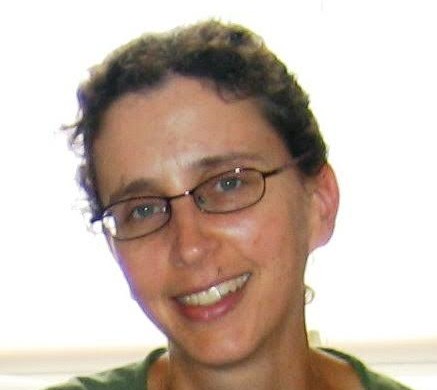Marjorie N. Feld (born 1971), Associate Professor of History, Babson College, Massachusetts, U.S. Born in Harrisburg, Pennsylvania. Prof. Feld received her Ph.D. in History at Brandeis University. Her teaching and research, in Babson College, include U.S. social, labor, and women’s/gender history, along with the history of global human rights movements.
In your opinion, what importance, if any, does the existence of a Jewish state have to you personally and to Jewish people in general?
“I grew up in a small suburban town where my primary sense of belonging was to the Jewish community. Zionism was to me then the foundation to my own sense of Jewishness. Though I still strongly identify as a Jew in the U.S., I now reject the mainstream Zionism that I was raised to believe in. I now see my Jewishness as tied to fighting for justice in Israel/Palestine.”
Do you feel committed in some way to defend the future existence of Israel?
“Israel in its current state is unsustainable. I feel committed to fighting for an end to the Occupation, to fighting for justice in Israel and Palestine. I also feel that uncovering the history of U.S. support for Israel is key to those endeavors.”
Do you feel morally responsible for Israel’s actions (such as its management of the Israeli-Palestinian conflict)?
“Because I feel a strong sense of Jewish belonging, I feel ashamed of Israel’s undemocratic actions and leadership, and a sense of kinship with those who work for a true, sustainable solution to what you call the ‘conflict’.”
In your opinion, what is the main thing Israelis fail to understand about the reality of being Jewish outside of Israel?
“There is a rich diversity of views regarding Israel and Zionism. The history of American Jewish leadership offers evidence of why the Jewish left–specifically those who offered strong critiques of Israel’s Occupation and undemocratic, racist policies–were not given a voice and were rendered virtually invisible in the U.S. Jewish community.”
Would you say that in the last years this situation (meaning silencing those who are critical at Israel)) have changed, or is the Jewish left still without a voice?
“It’s a very good question. The urgency of the situation in Israel and Palestine is driving many American Jews to seek membership in organizations such as Jewish Voice for Peace, whose membership is exploding right now. With those rising numbers of members (and with their membership dollars behind the organization) I think the Jewish left is becoming increasingly visible and heard.”
How would you describe Israel’s policy (formally and in practice) regarding its relationship with the Diaspora?
“Condescending, stonewalling, manipulative. This is a relationship that relies heavily on past tragedy–unspeakable, horrifying tragedy–to create an image of a persecuted minority. The relationship is left untouched by contemporary currents and realities.”
In your opinion, does Israel have an obligation to defend and help Jewish communities in need?
“No.”
Have you ever been to Israel?
“Yes, twice. I was fortunate to live within a Meretz-supporting community on a kibbutz many years ago, and it was there I began to learn of alternative ways of looking at Palestine and Israel.”
Can you tell us a bit about the Jewish community in your hometown? Is it organized? Are there community activities?
“I grew up in Harrisburg, Pennsylvania, in a close-knit community with four synagogues. My life was in many ways defined by the community’s offerings, which (even with four shuls!) was not diverse enough for me to find a home as a liberal searching for answers.”
Is there a question you feel should be added to the project’s questionnaire?
“Though I can’t craft it precisely, I feel there should be a question about the history of Jewish communities in the person’s nation of origin. To what degree do the past and current Jewish leaders in that nation reflect the views of the majority of the nation’s Jewish citizens?”

